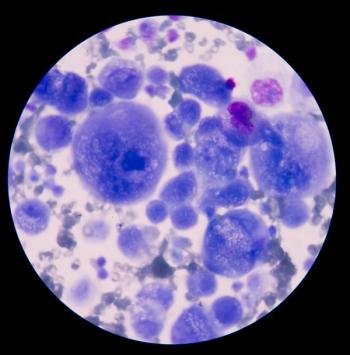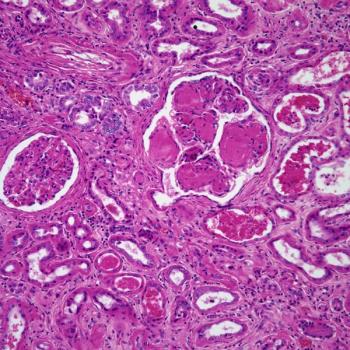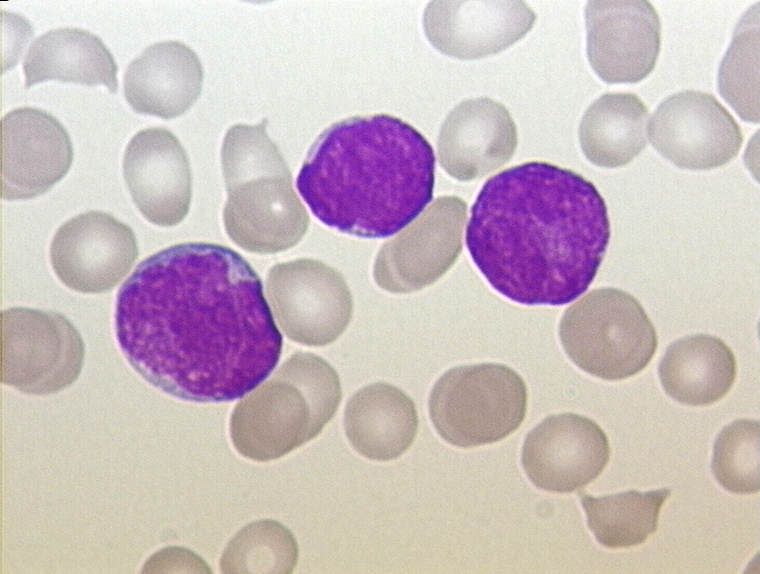
Adverse Effects
Latest News
Latest Videos
More News

Investigators assess edoxaban as part of a multicenter, open-label superiority trial in patients with active cancer and newly diagnosed isolate distal deep vein thrombosis.

The FDA requires data from an additional clinical trial to support the potential approval of avasopasem for managing radiation-induced severe oral mucositis in patients with head and neck cancer.

Hypersensitivity reactions following platinum-based treatment appear to be more severe than hypersensitivity reactions after taxanes among patients with cancer.

Greater age may be an additional risk factor for fatigue among patients with prostate cancer receiving second generation antiandrogen agents, according to a recent systematic review.

Replacing vincristine with polatuzumab vedotin in R-mini-CHOP, although it hasn’t increased grade 3/4 hematologic toxicity, may increase gastrointestinal adverse effects in a cohort of frail patients with diffuse large B-cell lymphoma.

Plans have been made to file a new drug application in China for roxadustat as a treatment for chemotherapy-induced anemia in those with non-myeloid malignancies.

Findings from the phase 1/2 MajesTEC-1 trial suggest that preemptively planning and promptly managing cytokine release syndrome with supportive care in patients with multiple myeloma treated with T-cell–engaging bispecific antibodies may be beneficial.

A senior physician’s assistant from Johns Hopkins examines why adverse effect management is so crucial and reviews how to help maintain quality of life while undergoing treatment.

Findings from 2 phase 3 trials support the recommendation to approve sodium thiosulfate to reduce the risk of cisplatin-related hearing loss in pediatric patients with solid tumors in Europe.

In addition to granting fast track designation to RRx-001, the FDA accepts an investigational new drug application for the agent to reduce and/or prevent radiation- and chemotherapy-associated oral mucositis.

Patients with non–small cell lung cancer who had mild/moderate immune-related adverse effects appear to have improved overall survival compared with those without following atezolizumab-based therapy.

Evaluating Treatment Options and the Multidisciplinary Care of Ocular Toxicities of MEK Inhibitors
David L. DeRemer, PharmD, BCOP, and Bently P. Doonan, MD, MS, share a perspective on ocular toxicities associated with MEK inhibition.

Ocular Toxicities of MEK Inhibitors in Patients With Cancer: A Systematic Review and Meta-analysis
Jing Han, MD, and colleagues examine the prevalence and characteristics of ocular toxicities associated with MEK inhibition.

Investigators indicate that strategies are necessary to identify patients with extensive-stage small cell lung cancer who won’t benefit from immunotherapy-based treatment.

Abatacept plus ruxolitinib and screenings for concomitant respiratory muscle failure may be effective in reducing the rate of mortality related to immune checkpoint inhibitor–associated myocarditis among patients with cancer.

A prefilled autoinjector presentation of pegfilgrastim-cbqv, a pegfilgrastim biosimilar, has been approved by the FDA for patients with cancer undergoing chemotherapy who may experience febrile neutropenia.

In particular, female patients who were considered obese with an advanced malignancy seem to have a higher incidence of high-grade immune-mediated adverse effects following treatment with nivolumab.

Data from the phase 3 ROMAN trial and the phase 2b GT-201 trial support the new drug application for avasopasem in radiotherapy-induced severe oral mucositis for those with head and neck cancer.

A medical oncologist and research audiologist from St. Jude Children’s Research Hospital discuss how sodium thiosulfate injection may improve quality of life by preventing cisplatin-associated ototoxicities in pediatric patients with localized non-metastatic tumors, although more research is needed.

The new drug application for avasopasem for radiotherapy-induced severe oral mucositis in patients with head and neck cancer is supported by findings from the phase 3 ROMAN trial and phase 2b GT-201 trial.

Findings from a meta-analysis highlighted an association between risk of cutaneous adverse effects and use of PI3K inhibitors across different types of cancer.

Initial findings from a phase 2 trial showed trilaciclib given before sacituzumab govitecan-hziy lessened the severity of adverse effects in patients with unresectable locally advanced or metastatic triple-negative breast cancer.

Across various cancer types, stereotactic ablative body radiotherapy was found to be a safe method for treating oligometastes.

FDA Approves Sodium Thiosulfate to Decrease Cisplatin-Associated Ototoxicity in Pediatric Localized, Non-Metastatic Solid Malignancies
Sodium thiosulfate, which appears to be effective in decreasing the risk for hearing loss related to treatment with cisplatin, received FDA approval in pediatric patients with localized, non-metastatic solid tumors.

Based on evidence from the phase 3 ADVANCE and RECOVER trials, the FDA has approved eflapegrastim-xnst injection to decrease the incidence of infection related to febrile neutropenia for patients with non-myeloid malignancies who are receiving treatment with myelosuppressive anti-cancer agents known to be associated with clinically significant neutropenia.
















































